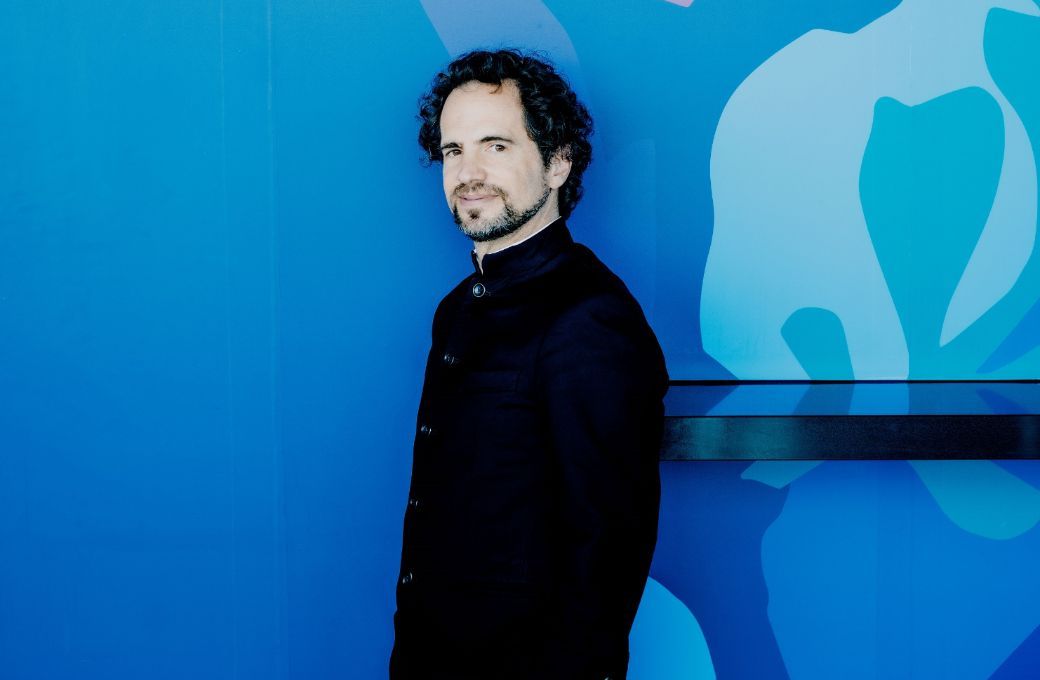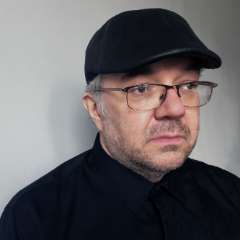I was excited at the opportunity to hear Ensemble Modern in their hometown of Frankfurt during a trip between European festivals, having only heard their luminous sound live for the first time a couple of months prior over two nights at Carnegie Hall. The opportunity to discover five composers whose names were new to me, all under the age of 40, only sweetened the deal.

The concert, under the rather quaint banner “Happy New Ears”, was held in a modest but comfortable theatre at the University of Frankfurt School of Music and Art. Three of the works on the program were commissioned by the Warsaw Autumn festival. The evening opened with Iranian composer Arash Yazdani's Shimmering of White Phosporous for 12 instruments, full of wavering discordance rendered lovely and lush by the ensemble. String and horn figures circled each other without building but riddled with tension. The last couple of minutes of the quarter hour cascaded quite nicely, but I was left feeling like I was listening more to the musicians than the composer.
Katarina Gryvul, from Ukraine, brought a vintage Buchla synthesizer to the hall and joined a smaller subset of the ensemble for her Skvyrk, in which she forced the acoustic instruments to meet her at least halfway. It was impressive in orchestration and execution, but again left me thinking more about the performance than what was performed. It was as if both compositions had served as mirrors before the ensemble, designed to force them into particular structures, but leaving me wondering what was being imparted. More head than heart.
Infuse: Playtime, composed by the Kosovo-born Anda Kryeziu in 2021, used putty on strings, e-bow on the piano, heavy sticks for bows and metal percussion of the composer's devise to demonstrate what she called in her introduction “my library of sounds”. The sounds were hers but their arrangement reminded me of Berio, as Grybul's had made me think of Xenakis's indulgences in noise. I wondered, then, if the opening piece might have been a spectral Stockhausen and what it meant for cutting-edge works to recall the previous century. These are touchstones I adore, but these new ears seemed a bit retrofitted.
The feeling continued with the Polish composer Anna Sowa's Friction of the Wooden Dragon. With people on tape discussing their states of mind, musicians rubbing percussion instruments across their bodies, the pianist running laps around his instrument and the conductor being spun on his heels, I was left thinking of Mauricio Kagel, and wondered if the final piece might, hopefully, blow the thesis I was developing.
I hadn't caught the name on the program, but when Alex Paxton was announced, I went scurrying through the program searching for something that looked like “trombone” in German. Indeed, it was the British composer/improviser who'd wowed me at the Long Play festival in Brooklyn in May. His Scrunchy Touch Sweetly to Fall (Kite n Finger run) was vibrant! playful! Technicolor! Asian flute songs, Bernard Hermann strings and synthesizer bird calls commingled with enormous arpeggios in a cartoon ballet. Was it ‘new’? Maybe not. Such pastiche is more postmodern than post-war modern, but Paxton put his unique stamp on it – maybe a bit of Nino Rota's, but mostly his own — and I sat smiling for something that maybe wasn't groundbreaking but was wonderfully fresh.


